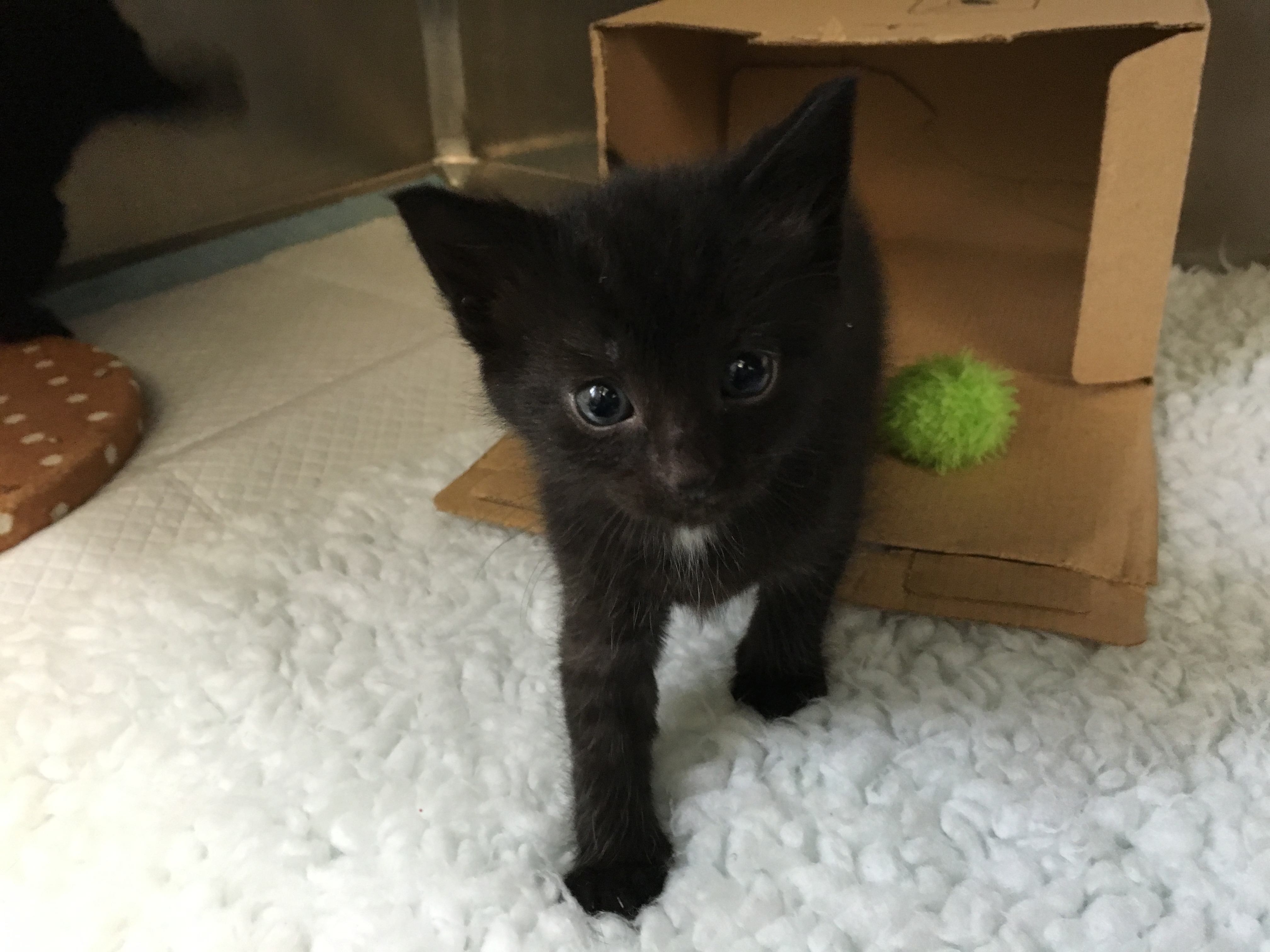- Feeding– try to continue the same food that the breeder was feeding at least in the first few days. You may then mix in a new kitten food if you would like to change it over the next few days. Kitten food will have all the nutrients and vitamins they require, and vitamin supplements are not needed. If your kitten develops diarrhoea, you should stop the kitten food and feed boiled chicken or fish for a couple of days. Cats do not need milk once they are eating kitten food and it can cause diarrhoea. Fresh tap water should be available at all times. Continue feeding 3x daily until 6 months old, and then 2x daily. Dry food is better for your cats teeth as they get older and may be more convenient in warmer weather than wet food, but a mix of wet and dry may be offered.
- Worming– most kittens will have worms which have been passed from their mum. They will need worming when acquired ( usually around 8-9 weeks of age), with either tablets or more commonly a spot on treatment from the vet.
- Vaccinations should be given to protect your kitten from airborn viruses such as cat flu, and also cat enteritis ( diarrhoea). Leukaemia vaccination is also usually included, and is recommended for any cat that will go outdoors. Yearly vaccination boosters are required to maintain their immunity.
- Training kittens is not as easy as for dogs- cats are just more independent ! However they should be provided with cat scratching posts, and should have regular play with toys. A piece of paper rolled up into a ball can give a lot of fun ! Avoid playing with cotton thread or wool as they are dangerous if swallowed. If they are badly behaved with biting an scratching, do not tell them off as they won’t understand and it may make them fearful. Just ignore them by leaving the room or by putting them in an area by themselves.
- Flea treatment should be used regularly particularly for outdoor cats ( but indoor cats may also pick up fleas, possibly brought in on clothing, or by other pets). We generally recommend monthly spot on treatment with Stronghold ( which also treats the common worms -roundworm), but flea injections given every 6 months are also available. Flea collars and most flea treatments from supermarkets are ineffective, and flea treatments from the vet are far more effective in preventing flea infestations occurring.
For further information on kitten and cat care see our blogs on
How to stop kittens and cats scratching furniture
Tips to stop your cat spraying or toileting in the house
How to train your kitten to play without biting
Choosing a kitten – top ten tips
Cat carriers- how to get your kitten or cat to enjoy going in



